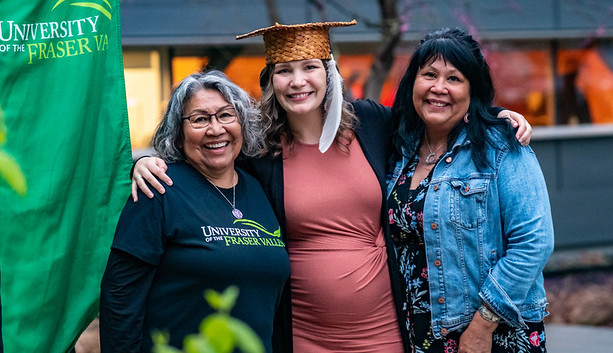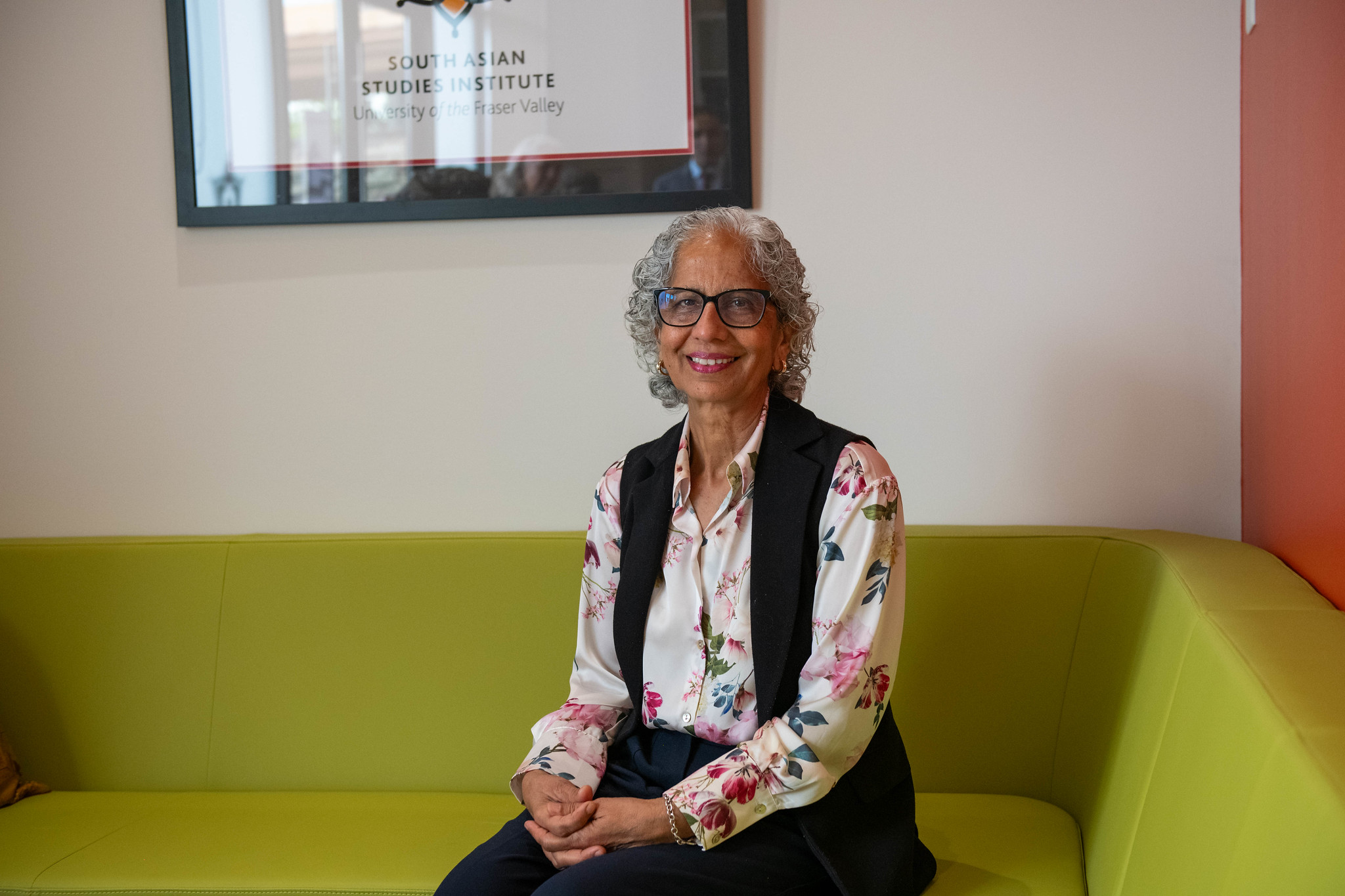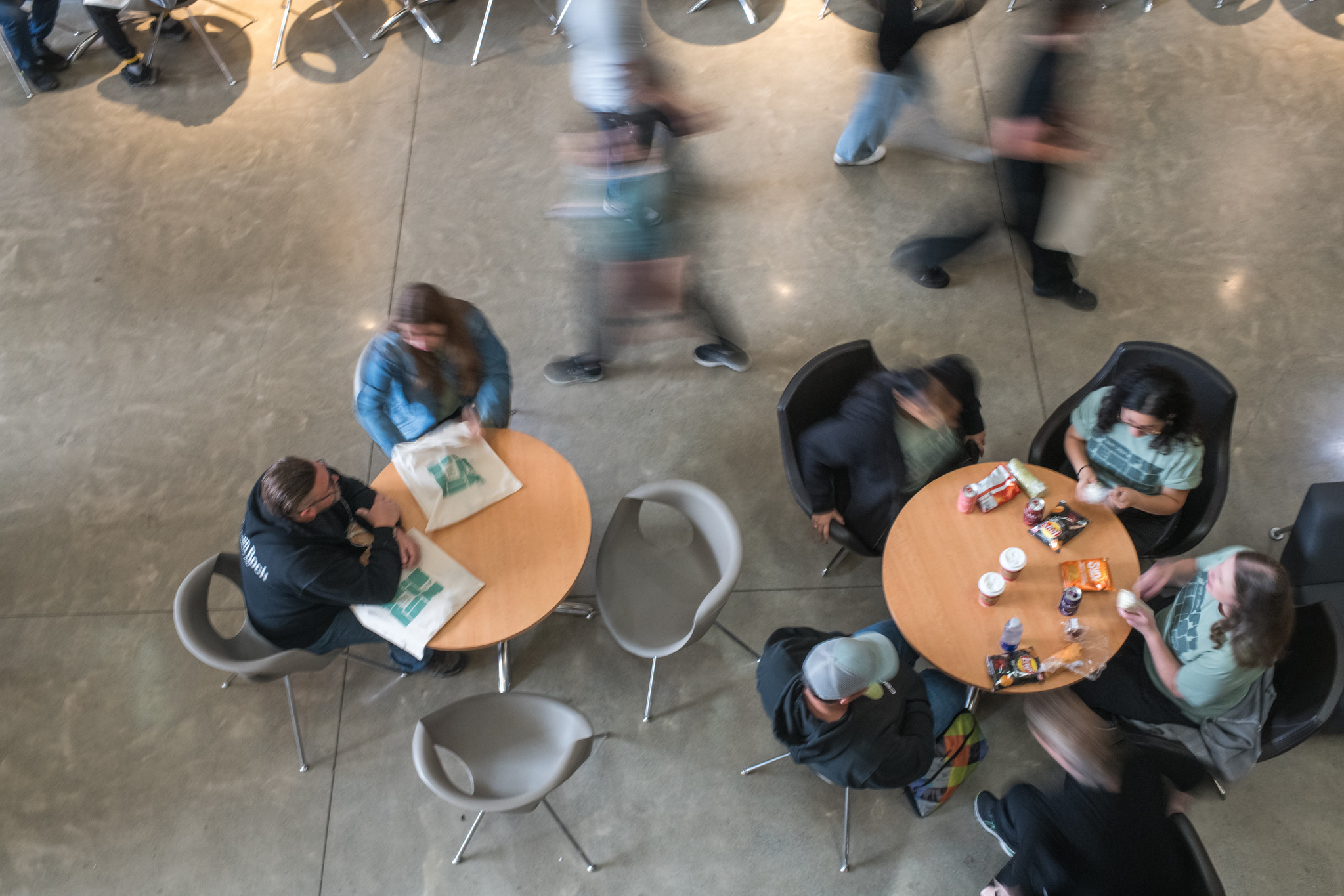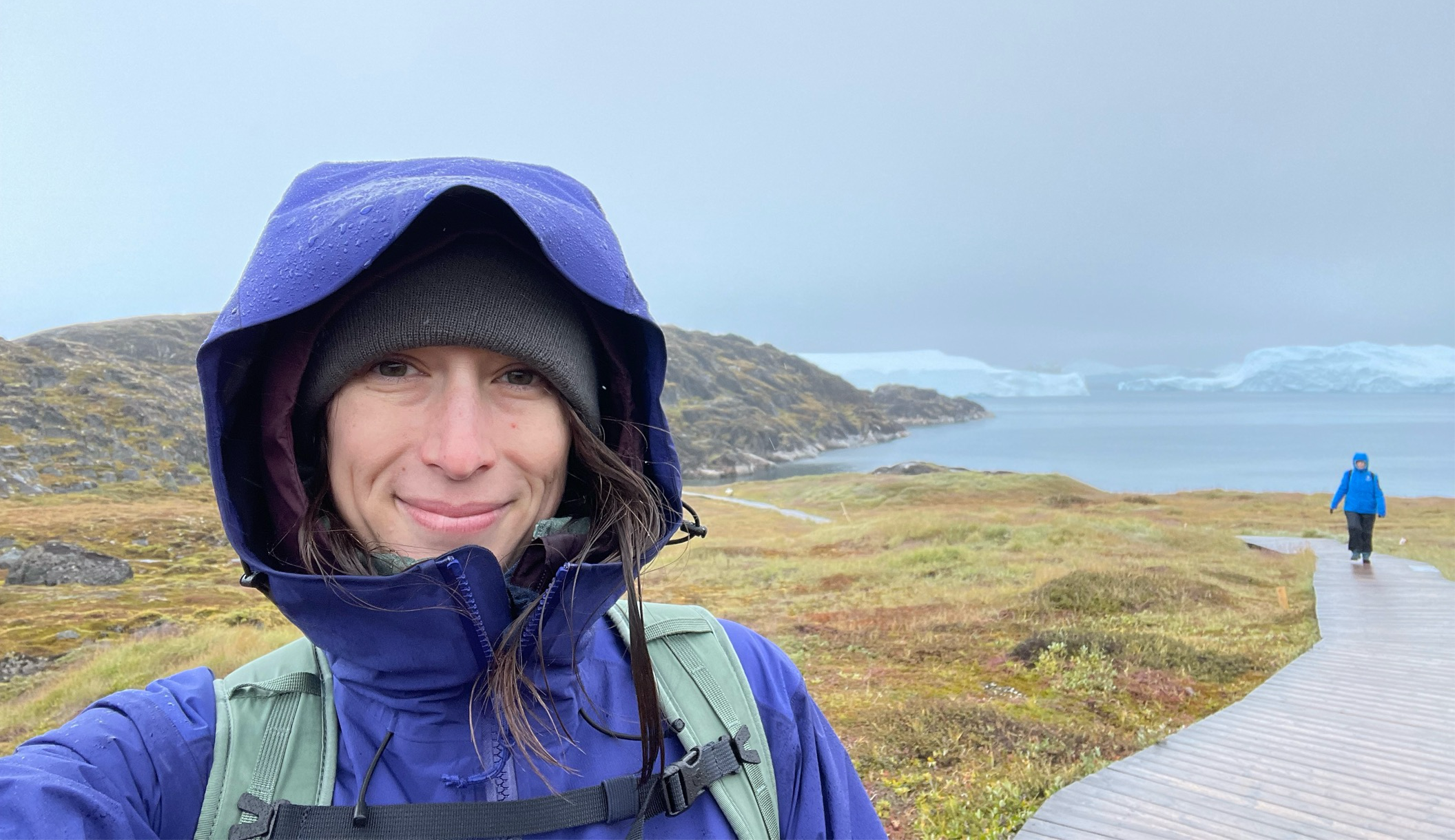Preserving language, embedding culture — Donors support Indigenous initiatives at UFV
For too many decades, forces of colonization actively worked to deny young Indigenous people access to their own language. And language is critical to culture.
Reconciliation with Stó:lō people is a significant priority for UFV, and a diverse group of donors have played a role in funding the preservation of Halq’eméylem language, and supporting Indigenization efforts at the University of the Fraser Valley.
S’ólh Téméxw — the area now commonly known as the Fraser Valley — means “Our Land, Our World” in the Stó:lō language of Halq’eméylem.
The original names of the many places and landmarks within S’ólh Téméxw each emphasize the deep history, culture, and ways of knowing of the people who have resided here for over 10,000 years.
In the beginning
In the 1970s, UFV (then known as Fraser Valley College) with its partner the Coqualeetza Education Society jointly developed and ran educational programming in Stó:lō subject-matters, including history, contemporary Aboriginal issues, Halq’eméylem language learning and Halq’eméylem instructor training. (Some of this was co-offered by FVC and Coqualeetza, and some offered by Coqualeetza with other partners.)
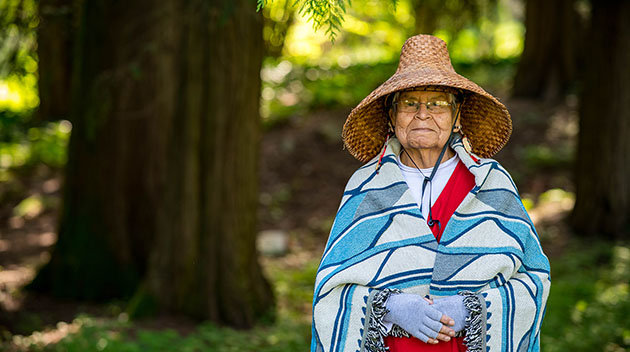
One of the key people working at Coqualeetza preserving Halq’eméylem was Elizabeth Phillips (pictured above), whose Stó:lō name is Siyamiyateliyot. She has spoken the language since her childhood and is the only surviving fluent native speaker of Upriver Halq’eméylem. If not for her willingness, along with other speakers who have now left this world, to share her love for her language, it might not have survived. For her efforts, the University of the Fraser Valley recognized her with an honorary Doctor of Letters degree at its 2018 convocation ceremony.
While being interviewed at that time, she casually peppered the conversation with Halq’eméylem words such as xwelítem for white person, and noted that she still thinks and dreams in Halq’eméylem.
“I only knew Halq’eméylem at first, but I would listen at the door as the Indian Agent came to talk to my dad, and he would translate for my mother, and I got to know both languages. One day, a xwelítem spoke to me in English and I answered, and my parents were surprised that I knew English.”
Siyamiyateliyot worked at the Coqualeetza Education Centre in the 1970s and 80s, and she cooperated with professional linguist Brent Galloway and other fluent speakers to create the Halq’eméylem dictionary.
“Halq’eméylem was an oral language until the Coqualeetza elders group created a writing system with Dr. Galloway,” recalls Elizabeth’s daughter Vivian Williams. “My mother and 11 other Elders went and lived in a dorm at UBC where they learned to use the writing system and completed the orthography of the language. Without their effort the language might be dead now. And now my mom is the last one alive who was involved in this project.”
As part of the continued journey of creating access to Indigenous education, UFV offers Halq’eméylem language courses taught by Stó:lō community members and also introduced the Bachelor of Arts in Indigenous Studies. These days, Siyamiyateliyot regularly visits the Halq’eméylem classes taught at UFV.
For Siyamiyateliyot, it’s the casual encounters with her former students that make her efforts worthwhile. “I was waiting for the bus after shopping and a young man came up to me and said éy swayel [hello]. He was from a class that I have visited taught by Koyalemot Mary Stewart.
“It happens at bingo too. Someone came up and asked if I was Elizabeth and thanked me for preserving our language.”
Professional linguists have played a vital role in assisting community members and Elders such as Siyamiyateliyot in helping the Stó:lō to keep their language alive. As part of the 2019 President’s Leadership Lecture Series, one of those linguists, Dr. Strang Burton, spoke at UFV.
Burton started to work with the Stó:lō in the 1990s. “They wanted people with knowledge of linguistics on their team,” he recalls. “But I also helped in the area of
pedagogy, because in order to preserve the language we had to find ways to help in the teaching of it.”
UBC-based linguist Brent Galloway had laid the groundwork in the 1970s, working with the Coqualeetza Elders group at Stó:lō Nation to create a Halq’eméylem dictionary in print. Burton and the Stó:lō Shxweli Elders group and community members built on this work by recording fluent speakers using the words and phrases in the dictionary so that learners could hear how the language sounds.
“We focused on some traditional stories, but we also recorded Elizabeth Herrling telling stories in her language about her life, what it was like growing up on Seabird Island, and raising her family. While preserving the language we also captured a sense of their lives. We are no longer in a situation where we can run conversation groups, but we did the right thing in collecting the samples of fluent speech and getting it archived. Now the challenge is to find ways to use that material for teaching and learning.”
Giving from the heart
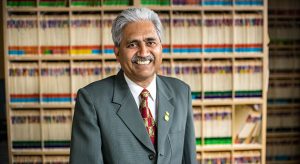
In 2016, the Dhami family established two annual $1,000 leadership awards: one for students studying Punjabi, the mother tongue of Dhamis, and one for those studying Halq’eméylem. Dr. Malwinder Dhami notes that he is a strong believer in preserving languages.
Further along the journey of Indigenization, the Native Northwest Reconciliation Fund chose to support UFV students. The fund established three yearly awards until 2024 and will provide a $750 bursary each year to three Indigenous UFV students studying Halq’eméylem.
Larry Garfinkel is the founder of Native Northwest and the Native Northwest Reconciliation Fund. He sees truth and reconciliation as a personal and collective responsibility. When the Truth and Reconciliation Commission was released in 2008, Larry and Native Northwest produced Truth and Reconciliation Calls to Action posters for classrooms and public environments to create conversations and to bring awareness.
First West Credit Union is also supporting Indigenous students at UFV. The First West Indigenous Scholarship and Bursary program provides two $1,500 scholarships that are awarded annually to outstanding Indigenous students enrolled in the Bachelor of Business Administration program. They also founded a $1,000 bursary that will be awarded annually to an Indigenous student enrolled in a human resources or finance program.
“The kind of systemic change we want to be part of can only be realized through a deliberate, long-term investment in relationship building backed by meaningful action,” said Launi Skinner, CEO of First West.
“These new scholarships and the bursary from First West will help to enable our Indigenous students to take advantage of educational opportunities and grow into leaders within our communities,” said Dr. Christophe Schinckus, UFV Dean of Professional Studies.
A hairy fundraiser
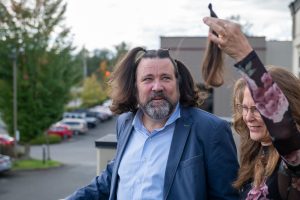 Canada’s first Truth and Reconciliation Day was in September of 2021, coinciding with the first month many people returned to the office after a COVID-induced hiatus.
Canada’s first Truth and Reconciliation Day was in September of 2021, coinciding with the first month many people returned to the office after a COVID-induced hiatus.
Like many, Stephen Hemphill, chief supply chain officer at Phantom Screens, started to grow his hair long at the start of the pandemic. Upon his return to office, some of his colleagues and staff weren’t fans of his ponytail, and CEO Esther De Wolde suggested they put his mane to a charitable use.
“I told him that if he would let us cut his hair, we’d raise funds as an organization towards any charity of his choosing,” said De Wolde. “Stephen took me up on it, and before I knew it, he recruited two other COVID-haired gentlemen on our staff to do the same in support of his charity.”
Hemphill was inspired by learning he had been doing on his own about the historic and ongoing mistreatment of Indigenous peoples in Canada.
“I was taking the Indigenous Canada course online with the University of Alberta when we were talking about the idea of a fundraiser. Reading about the Stó:lō Nation’s efforts to preserve its language and culture after surviving through genocide and colonization, I thought it would be great if we could do something to help. With the backdrop of the stories of the residential schools, I started looking at options.
I was pleased to hear about the Indigenous Studies program at UFV and specifically the Halq’eméylem language course.”
Phantom Screens employees were allowed to vote whether the long-maned trio should keep their long locks or submit to the hairdresser’s shears.
The ‘Cut the hair!’ donors won and the manes were sheared. The creative contest raised $20,000 toward a scholarship to fund tuition for a Halq’eméylem language student annually.
Swelchalot Shirley Hardman, UFV’s senior advisor on Indigenous Affairs, praised Phantom Screens for their support. “The act of giving to the university to support Halq’eméylem language learning is an act of reconciliation,” she said. “This support goes a long way in changing the relationships between Indigenous and non-Indigenous people in our community. It is a testament to the corporate culture of giving fostered at Phantom, but also to the understanding that language is culture. Tsetsel ey Si:yam.”\
Giving to support equity
Most recently at UFV, Dr. Lucy Lee, Dean of the Faculty of Science, established the Faculty of Science Annual Entrance Scholarship for Aboriginal Students. This fund will provide an Indigenous secondary student with $1,000 in their first semester and will become available in 2023.
“As the only girl in a Korean family with three brothers, I could not understand why I had to be the ‘servant’ to my father and my brothers just because I was born a girl,” Lee said when speaking about her inspiration for giving. “I am continuously fighting for equality, respect, and justice, and establishing an entrance scholarship to benefit a group of people who have been marginalized for so long, makes sense to me. Righting a wrong that has been so pervasive requires education, and as a post-secondary administrator, I am trying my best to do just that, not only by talking the talk, but by walking the walk.”
Honouring Ethel
The UFV Student Union Society has established an annual bursary to honour the late Dr. Ethel Gardner. This bursary is available to part-time or full-time Indigenous students enrolled in a Halq’eméylem language course or a course with a focus on Indigenous studies.
Ethel Gardner achieved outstanding academic success, including a Bachelor of Education at UBC, a Master of Education at University of British Columbia, a master’s degree from the Harvard Graduate School of Education, and, in June 2002, a PhD at Simon Fraser University with a doctoral theme on the Halq’émeylem language. Because of her educational achievements, and her devotion to the revival of the Halq’eméylem language, Stó:lō Elders gave her the name Stelómethet, which means highly educated woman.
“We dedicate this bursary to Stelómethet — Dr. Ethel Gardner,” said former SUS president Jessica Levesque. “This bursary honours Ethel’s incredible legacy in higher learning and her dedication to her Stó:lō culture and Halq’eméylem language she loved to the core of her being.”
To establish your own named award, or to contribute to an existing award, please contact Anita Nielsen, Executive Director, Advancement, at giving@ufv.ca or by calling 604-854-4595.
Some of the quotes included in this article were based on stories that appeared previously on the UFV Today blog.
“It happens at bingo too. Someone came up and asked if I was Elizabeth and thanked me for preserving our language.”
Professional linguists have played a vital role in assisting community members and Elders such as Siyamiyateliyot in helping the Stó:lō to keep their language alive. As part of the 2019 President’s Leadership Lecture Series, one of those linguists, Dr. Strang Burton, spoke at UFV.
Burton started to work with the Stó:lō in the 1990s. “They wanted people with knowledge of linguistics on their team,” he recalls. “But I also helped in the area of
pedagogy, because in order to preserve the language we had to find ways to help in the teaching of it.”
UBC-based linguist Brent Galloway had laid the groundwork in the 1970s, working with the Coqualeetza Elders group at Stó:lō Nation to create a Halq’eméylem dictionary in print. Burton and the Stó:lō Shxweli Elders group and community members built on this work by recording fluent speakers using the words and phrases in the dictionary so that learners could hear how the
language sounds.
“We focused on some traditional stories, but we also recorded Elizabeth Herrling
telling stories in her language about her life, what it was like growing up on Seabird Island, and raising her family. While preserving the language we also captured a sense of their lives. We are no longer in a situation where we can run conversation groups, but we did the right thing in collecting the samples of fluent speech and getting it archived. Now the challenge is to find ways to use that material for teaching and learning.”
Giving from the heart
In 2016, the Dhami Family established two annual $1,000 leadership awards: one for students studying studying Punjabi, the mother tongue of Dhamis, and one for those studying Halq’eméylem. Dr. Malwinder Dhami notes that he is a strong believer in preserving languages.
Further along the journey of Indigenization, the Native Northwest Reconciliation Fund chose to support UFV students. The fund established three yearly awards until 2024 and will provide a $750 bursary each year to three Indigenous UFV students studying Halq’eméylem.
Larry Garfinkel is the founder of Native Northwest and the Native Northwest


